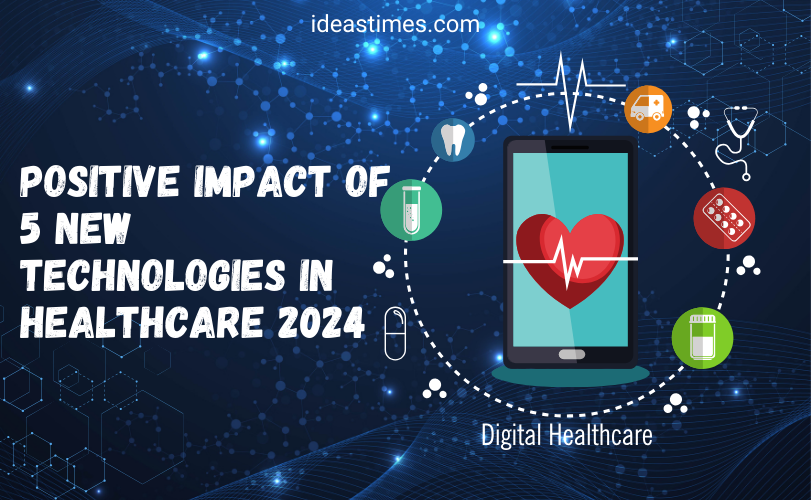Artificial Intelligence and Machine Learning
Artificial Intelligence (AI) and Machine Learning (ML) are at the forefront of healthcare’s technological evolution. These new technologies make diagnostics faster and more accurate, leading to better patient outcomes.
AI in Diagnostics: AI-powered tools assist doctors by analyzing medical images like X-rays and MRIs with exceptional precision. These tools can detect patterns that might be missed by human eyes, leading to earlier detection of conditions like cancer and heart disease.
Personalized Medicine: Machine Learning supports personalized medicine by analyzing patient data to predict how individuals will respond to treatments. This approach tailors care to each patient’s unique needs, enhancing treatment effectiveness.
Telemedicine and Remote Patient Monitoring
Telemedicine is rapidly becoming a vital part of healthcare. It allows patients to consult with providers from their homes, reducing the need for in-person visits and improving accessibility.
Virtual Consultations: Telemedicine platforms enable virtual consultations, making healthcare more accessible, especially in underserved areas.
Remote Monitoring: Remote monitoring new technologies allow providers to track vital signs like heart rate and blood pressure in real-time. This continuous monitoring enables timely interventions and better patient management.
Wearable Technology
Wearable devices are becoming increasingly important in healthcare, offering preventative care and chronic disease management capabilities.
Smartwatches and Fitness Trackers: These devices monitor heart rate, sleep patterns, and physical activity, helping individuals make informed health decisions.
Medical Wearables: Medical-grade wearables, like continuous glucose monitors, help manage chronic conditions such as diabetes, improving patients’ quality of life.
3D Printing in Healthcare
3D printing is revolutionizing healthcare by enabling the creation of custom prosthetics, surgical models, and even human tissues.
Custom Prosthetics: 3D printing allows for creating prosthetics that fit perfectly, enhancing comfort and functionality.
Surgical Planning and Training: 3D-printed models help surgeons plan complex procedures, improving outcomes and providing hands-on training for medical students.
Robotics in Surgery
Robotic-assisted surgery is one of the most exciting advancements in healthcare, offering greater precision and control during procedures.
Minimally Invasive Surgery: Robotic systems allow for smaller incisions, reducing recovery times and improving patient experiences.
Automation in Hospitals: Beyond surgery, robots are used for various tasks in hospitals, reducing staff workloads and increasing efficiency.
Advanced Genomic Sequencing
New technologies increasing Advanced Genomic Sequencing rapidly, providing deeper insights into individual genetic profiles and contributing to more effective treatments.
Personalized Genomic Data: Advanced genomic sequencing offers detailed information about a patient’s genetic makeup. This information allows for more precise diagnoses and tailored treatment plans based on genetic predispositions.
Predictive Genomics: This technology also enables the prediction of genetic disorders before symptoms appear, facilitating early intervention and preventive care strategies.
Augmented Reality (AR) in Medical Training
Augmented Reality (AR) is increasingly being utilized in medical training and education, offering innovative ways to enhance learning and surgical planning.
Interactive Learning: AR applications provide interactive and immersive learning experiences for medical students and professionals. These tools simulate real-life scenarios and complex procedures, allowing for hands-on practice without the risks associated with real-life operations.
Surgical Visualization: Surgeons use AR to overlay digital images onto their field of view during operations. This capability improves precision by providing real-time visual information about anatomical structures, enhancing surgical outcomes.
Conclusion
Healthcare is undergoing a profound and positive transformation thanks to the rapid advancements in new technologies. These innovations are not only enhancing the efficiency of care but are also making it more personalized and accessible than ever before. The integration of cutting-edge technologies, such as Artificial Intelligence (AI), machine learning, telemedicine, wearable devices, 3D printing, robotics, advanced genomic sequencing, and augmented reality (AR), is revolutionizing how medical care is delivered and experienced.
The future of healthcare is bright, and staying abreast of these new technologies and trends will ensure that both patients and providers are well-equipped to make the most of the opportunities they present.

